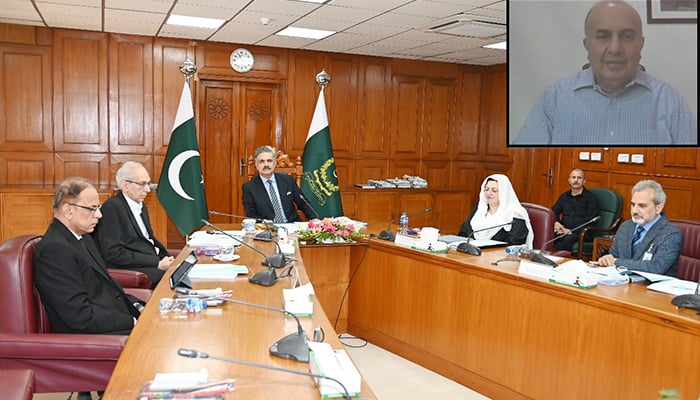SJC refuses to name judges cleared of complaints
Approves proposed draft of Supreme Judicial Council Secretariat Service Rules, 2025
The Supreme Judicial Council (SJC) on Saturday rejected a proposal for public disclosure of judges' names in resolved complaints and decided to maintained the council's established practice, Geo News reported citing sources.
The SJC unanimously dismissed 19 complaints filed by different individuals under Article 209 of the Constitution and deferred five others for further consideration, an official statement read.
The meeting, chaired by Chief Justice of Pakistan Justice Yahya Afridi, lasted for two hours and was attended by Justice Mansoor Ali Shah, Justice Munib Akhtar, Justice Aalia Neelum, and Justice Junaid Ghaffar.
The meeting was held under the chairmanship of Chief Justice of Pakistan Justice Yahya Afridi at the Supreme Court in Islamabad.
The meeting was attended by Justice Syed Mansoor Ali Shah via video link, Justice Munib Akhtar, Justice Aalia Neelum, Chief Justice Lahore High Court and Chief Justice Sindh High Court Justice Muhammad Junaid Ghaffar.
The sources said that it was decided that the names of such judges would not be disclosed, maintaining the council's established practice.
The official statement said that the council examined a total of 24 complaints under Article 209 of the Constitution filed by different individuals.
It approved the proposed draft of the Supreme Judicial Council Secretariat Service Rules, 2025.
The SJC also resolved that the procedure of enquiry and amendments in the Code of Conduct needed to be examined from a legal and drafting point of view; therefore, these required further deliberation.
-
Security forces gun down 30 terrorists in multiple IBOs in KP: ISPR
-
MQM-P calls for new province in Sindh
-
US report validates Pakistan military edge over India: PM
-
Banned TTP poses serious threat to Pakistan security: UNSC panel
-
CM Afridi clarifies remarks on by-poll after ECP requests army deployment
-
Dubai sees 3.2m Pakistani passengers in 2025 as airport sets new milestone
-
Security forces kill 23 Indian proxy terrorists in KP's Kurram
-
Pakistan to construct island to boost oil exploration: report












